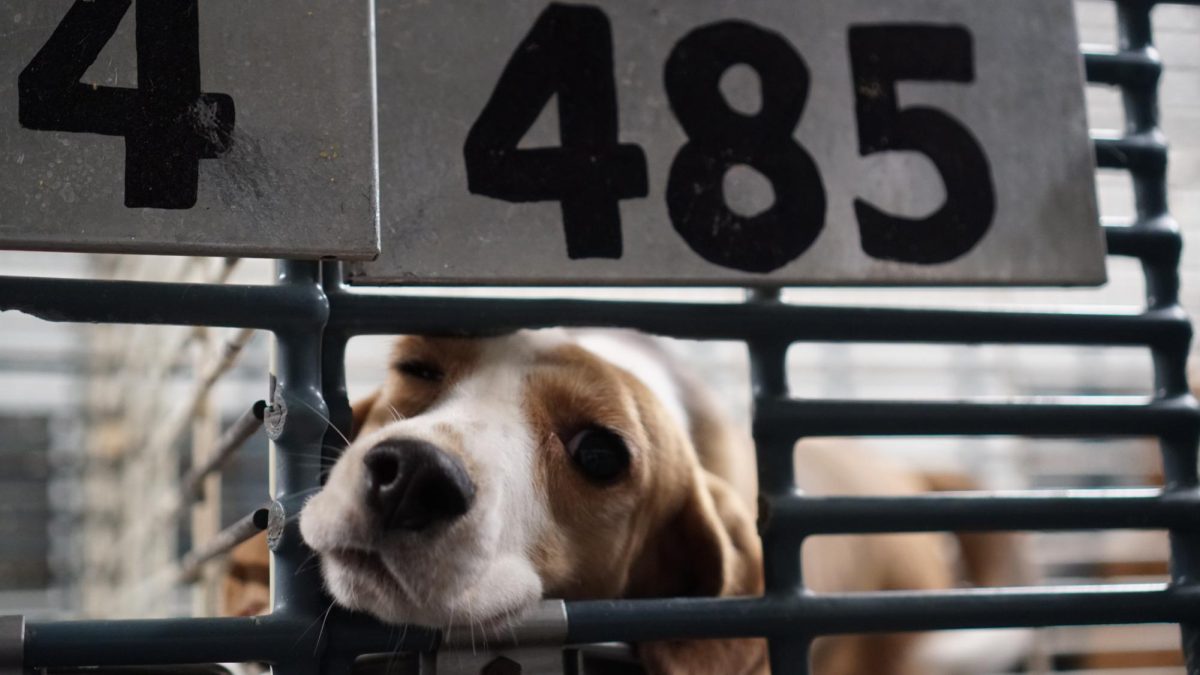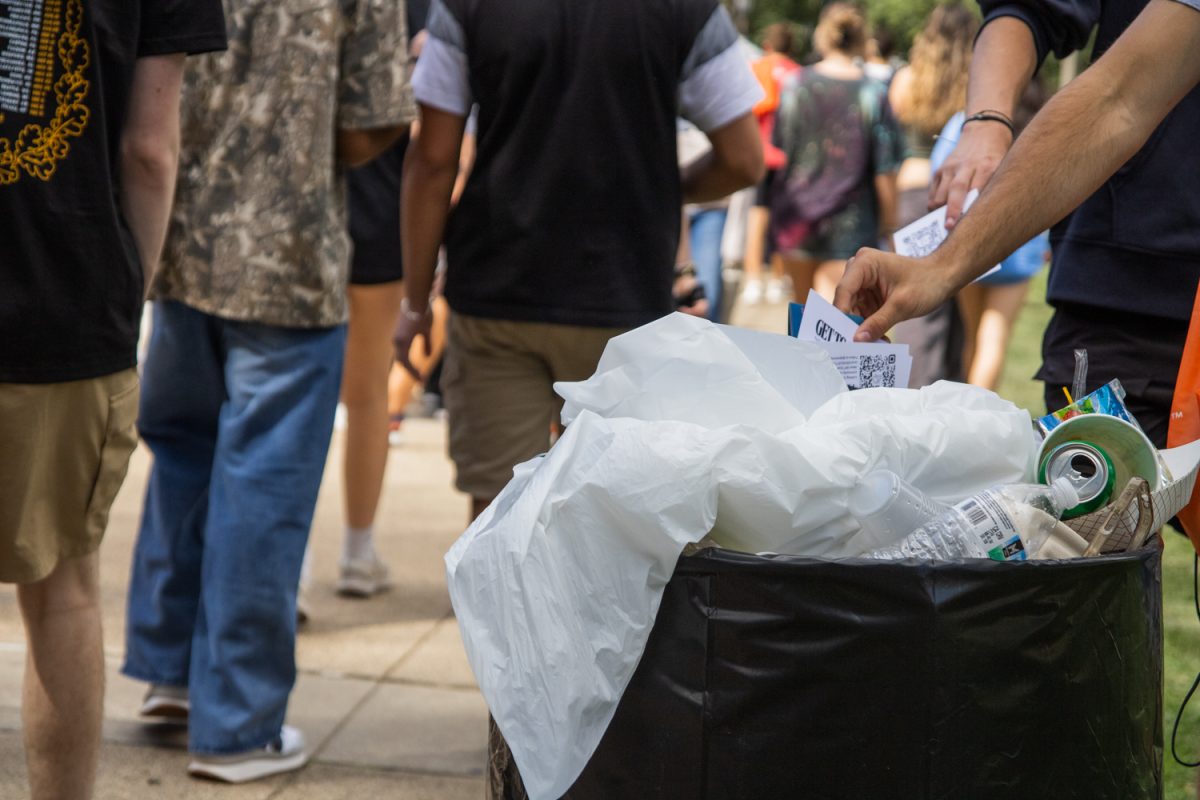In 2017, activists from the animal rights group Direct Action Everywhere entered a dog breeding facility in Dane County, Wisconsin, called Ridglan Farms. Ridglan sells beagles to animal experimenters, usually universities. One of their clients is our very own University of Illinois.
The activists sought to document the conditions and rescue some of the unwell dogs they found inside. As they entered, they discovered dogs confined one or two per cage, trapped with their own feces and urine. Their paws were red and swollen from constantly standing on cage floors made of plastic-coated metal wire. Many were spinning frantically — behavior resulting from severe psychological anguish.
The activists rescued three dogs: Julie, Anna and Lucy. Today, they enjoy going on walks, playing in the park and snacking on peanut butter, just like the pets many of us have at home. The others left behind were not so lucky.
Researchers at Illinois, for example, conducted a study on 21 beagle puppies from Ridglan whom they injected with sterilization drugs, monitored for undesired side effects and then killed. Studies elsewhere have included removing dogs’ organs and killing them or force-feeding them laundry detergent until they vomit blood and die.
The activists were trying to save these dogs from this violence. In March, they will face felony burglary and theft charges for their rescues. In multiple instances both before and after the rescues, the United States Department of Agriculture cited Ridglan for violations of the Animal Welfare Act — the main law regulating the treatment of research animals. Yet, the USDA declined to penalize Ridglan. So far, law enforcement has not even investigated them, a pattern found in other rescue cases across the country.
Get The Daily Illini in your inbox!
The USDA hasn’t just failed to penalize the University’s suppliers — they have overlooked violations right here on campus.
In 2017, Illinois researchers performed unsanitary surgeries on six cows and neglected them afterward, causing one to die and four to be killed. In 2021, a sheep had his blood drawn repeatedly in a vet med class until he died. In 2022, vet med students left a rabbit’s leg fracture untreated until she couldn’t bear her own weight and was killed. All of these instances violated the AWA, but the USDA chose only to issue warnings, even though it was repeated misconduct.
What the AWA allows is arguably worse than what it’s supposed to ban. It does not prohibit any type of research from being performed on animals, only how they can be held — with low standards. At Illinois, researchers have subjected animals to, among other things, food and water deprivation, risk of death from seizures, multiple major survival surgeries, prolonged restraint, wire-bottom caging, unrelieved pain/distress, death as an endpoint and methods of euthanasia not approved by the American Veterinary Medical Association.
Approximately 85-95% of research animals nationwide are not even covered by the AWA. Legally, they can be treated in any way at all. Illinois records show students and researchers regularly leave them out in the cold, forget to feed them or kill them through neglect.
We should ask ourselves what it means that the people who rescued the animal victims are on trial while the breeders and researchers abusing and killing them are let off with warnings at worst. It means that law enforcement agencies are actively upholding a system of violence. Luckily, we can change that.
First, we must learn the truth about animal experimentation. You can do that by following @RidglanTrial on X, formerly known as Twitter.
Secondly, you can sign the petition to legalize rescuing animals from abusive places like puppy mills and animal labs. If authorities won’t help them, ordinary people should. That petition is at righttorescue.com. The Champaign-Urbana community loves our dogs. They, and the other animals in the University’s labs, have the right to live safe, happy lives. We have to fight to make sure they get it.
Want to send a letter to The Daily Illini? Submit a letter through this form. Note that we reserve the right to edit for AP style formatting or reject any contributions.








